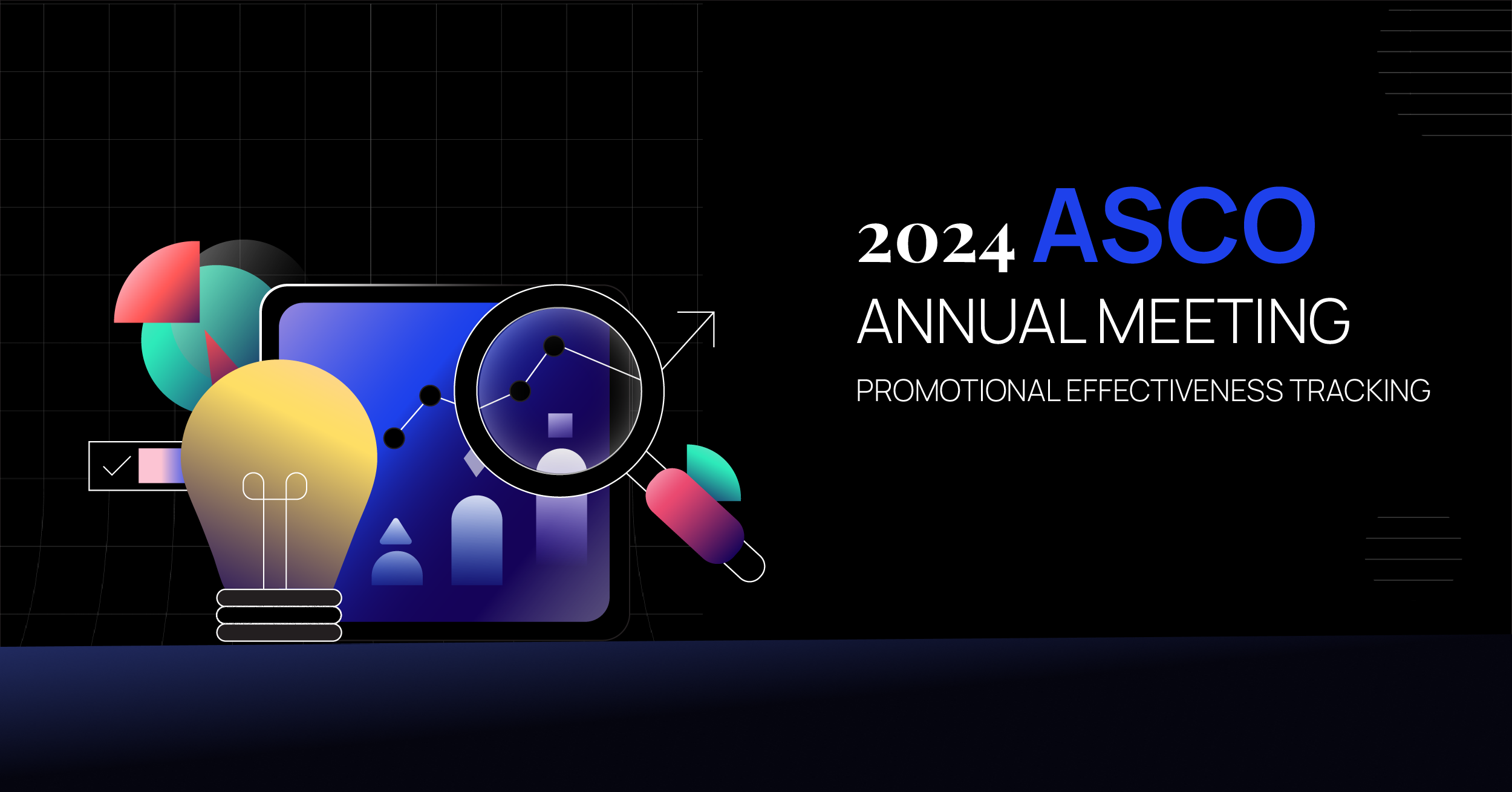This year marked the 60th Annual ASCO Conference—and as befits an august institution, it was noteworthy. Over 40,000 oncologists, industry professionals and patient advocacy activists gathered at Chicago’s McCormick Place from May 31st to June 4th, 2024. The theme was The Art and Science of Cancer Care: From Comfort to Cure. With more than 200 sessions and presentations about emerging therapies, eye-catching manufacturer booth displays, inspiring exchanges among colleagues and KOLs, and lots of coffee from pop-up stands on the manufacturer floor, it was filled with memorable moments.
After the conference, ZoomRx conducted our 6th Annual Post-ASCO Survey. Over 70 practicing oncologists (all in-person conference attendees) offered their perspectives about ASCO 2024. We share those findings here.
ASCO Baseline: Consistently Valuable Data
We chart many of the survey responses year over year, to identify trends and reveal shifting attitudes. Mirroring 2023 results, nearly two-thirds of respondents stated that ASCO 2024 exceeded their expectations.

Moreover, nearly 60% of oncologists felt that the data presented at ASCO 2024 showed breakthrough advances or major progress in clinical oncology; this is also consistent with reactions after ASCO 2023.
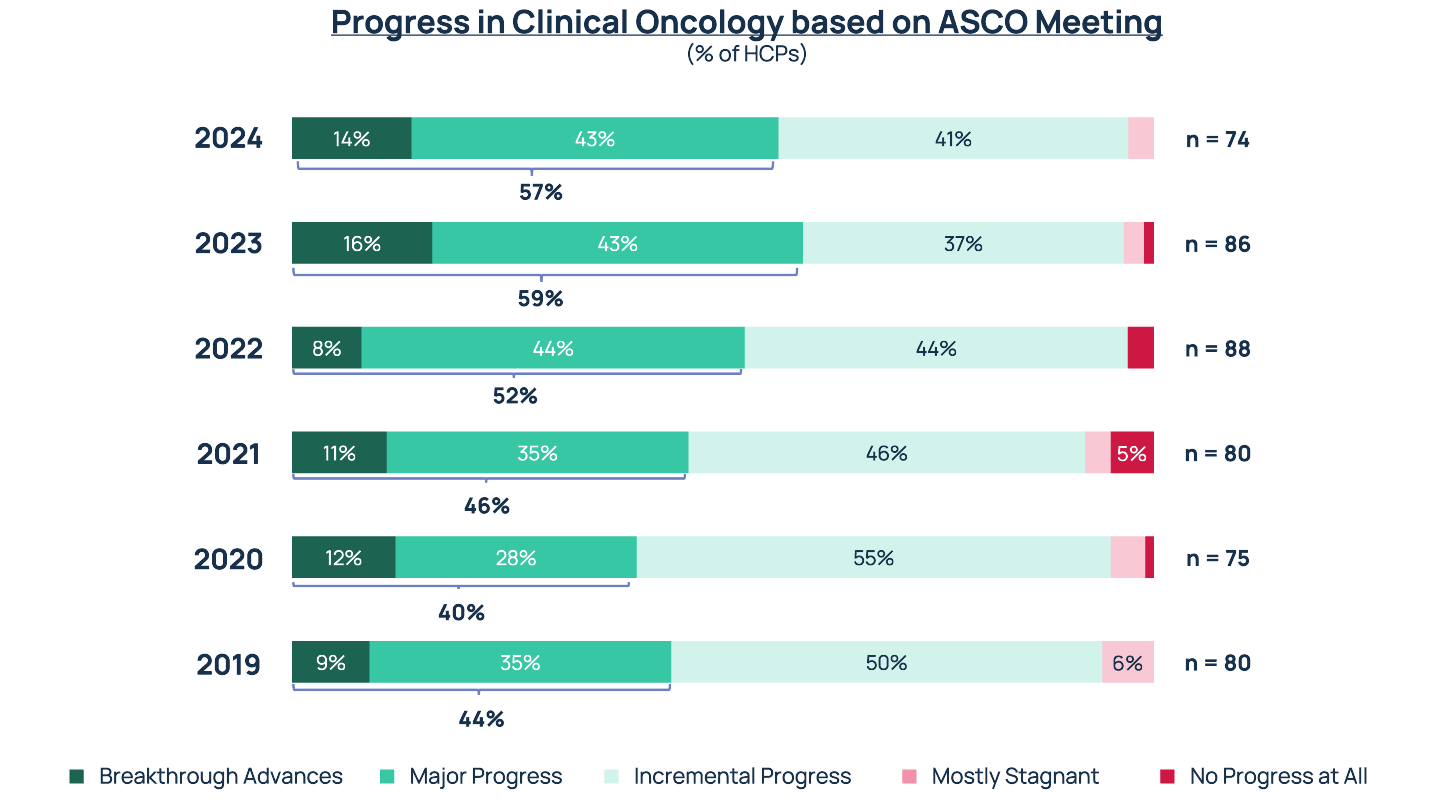
Respondents reacted positively to the sessions and felt several presentations delivered data that would be immediately practice changing. In fact, 46% of oncologists believed the data they saw at ASCO 2024 would have a direct impact on their practice; that is an increase of 8% over ASCO 2023. In many cases, including the plenary sessions, fresh data for FDA-approved drugs supported expanded indications or patient populations; these data are likely to trigger new FDA submissions and approvals. Although there were fewer presentations about novel therapies that were already in market, oncologists felt that the data about potential drug candidates was very exciting; results from the ASC4FIRSt trial in chronic myelogenous leukemia for Scemlix (asciminib) were a highlight.
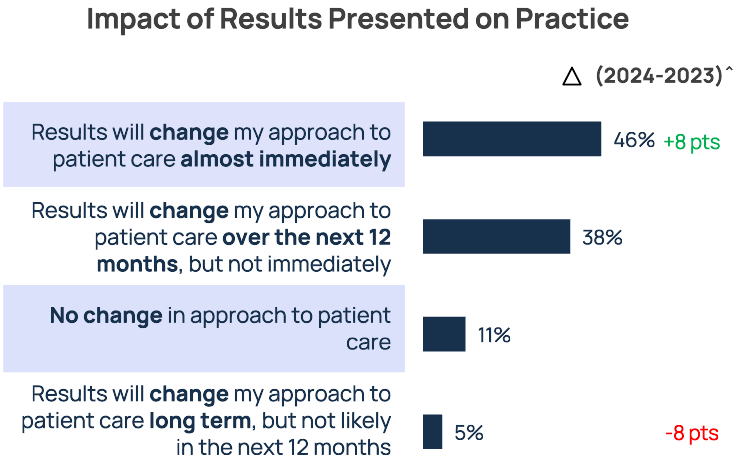
Perspectives in Oncology: Patient-Centered Care
ASCO presenters consistently focus on patients, but this year’s discussions had more actionable content. Key sessions emphasized the importance of identifying patients who will benefit the most from a drug’s efficacy—and patients who will not experience toxicity from a drug. They hailed the value that specific biomarkers can deliver. They also underscored the critical importance of near-universal access to comprehensive testing to ensure efficacy while maintaining patients’ quality of life; this is seen as a crucial milestone in the evolution of oncology. Finally, presenters acknowledged the growing role of AI and data technology solutions both for clinical trial recruitment and for improved outcomes.
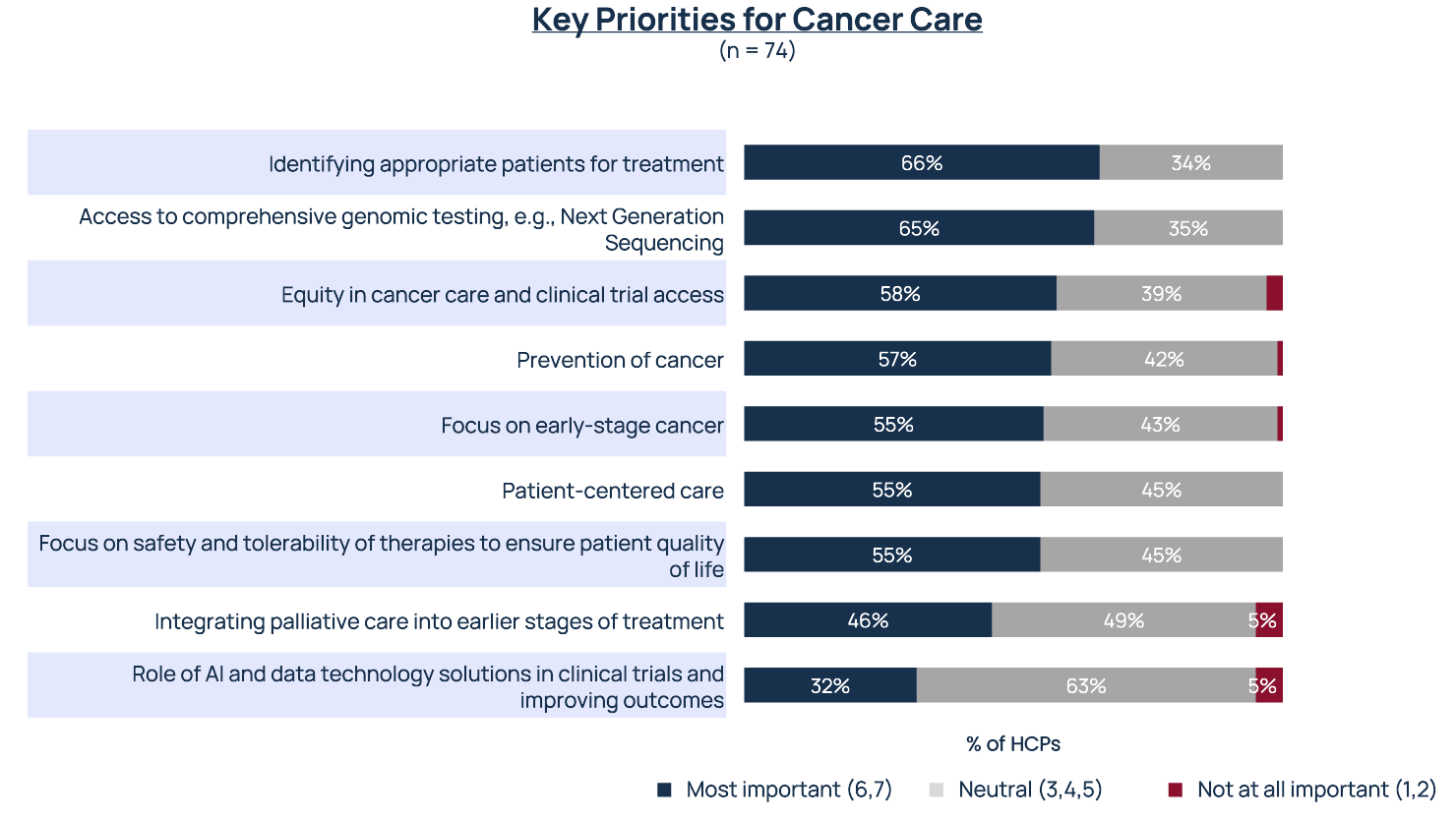
Anti-body Drug Conjugates: New Transformative Therapies
Conference goers are always attentive to fresh insights into specific treatment categories. While targeted therapies and bispecific antibodies remain of interest, this year, antibody-drug conjugates (ADCs) were the highlight of the conference. In fact, three-quarters of oncologists view ADCs as practice-changing based on the data they saw at ASCO. The class does face some challenges; there are hurdles both in identifying the right candidates for a given ADC and for ADCs to fully realize their efficacy and tolerability potential. Yet, even with the recognition of these challenges and unknowns, the hopes for the future potential of ADCs remains high.
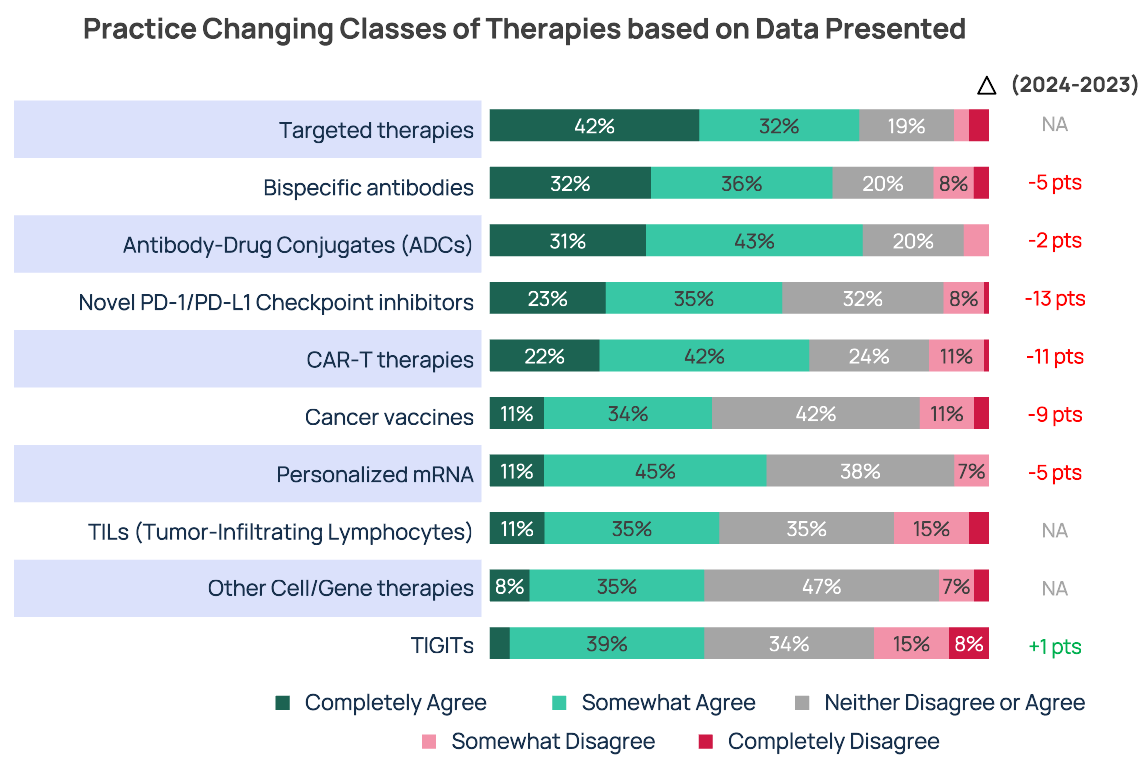
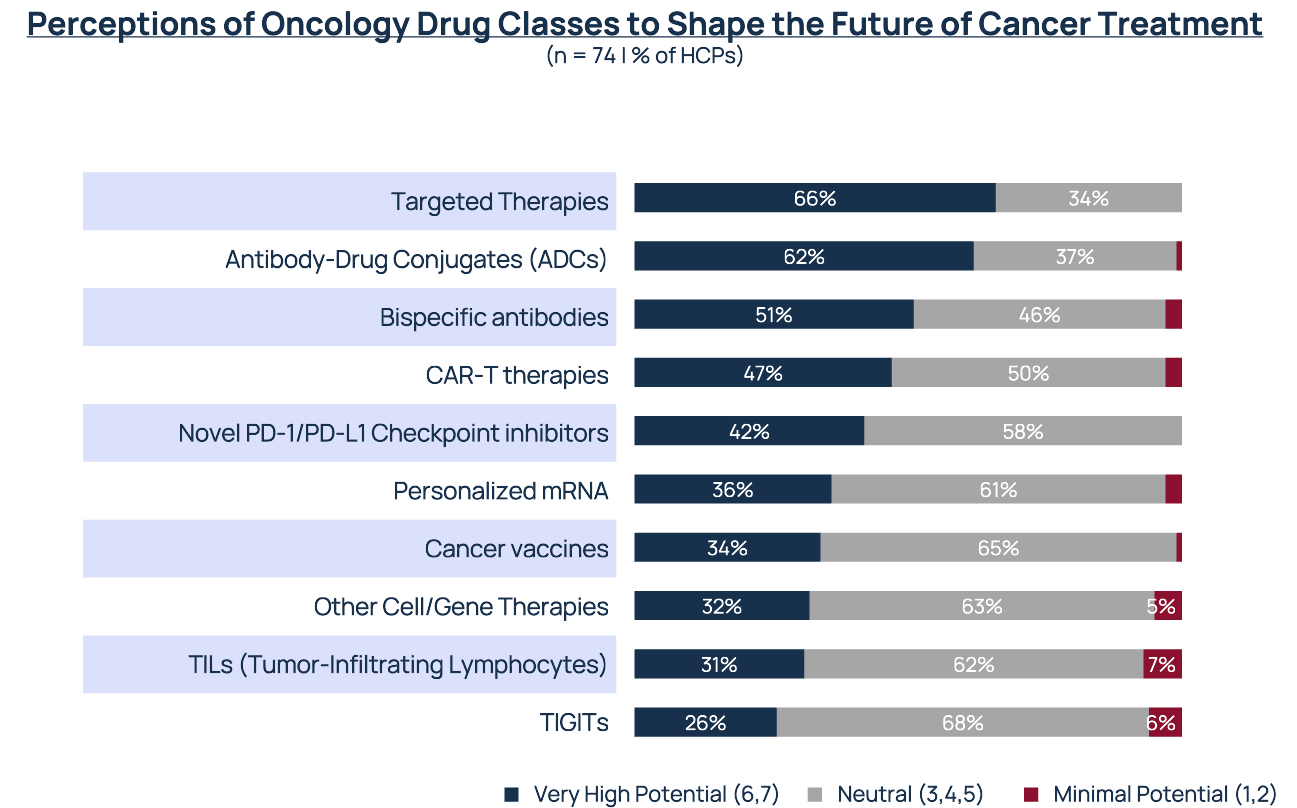
Key ASCO sessions underscored the clear potential of ADCs to be immediately practice changing. Data from three Phase 3 trials particularly stood out:

- ECHELON-3 studied an Adcetris regimen (brentuximab vedotin + Revlimid + Rituxan) in relapsed/refractory diffuse large B-cell lymphoma (DLBCL). In the study, median overall survival (OS) was extended to 13.8 months for the Adcetris arm compared to 8.5 months for chemotherapy alone.
- Destiny-Breast06 (DB-06) studied Enhertu (trastuzumab deruxtecan) in previously treated, HR-positive HER2-low and HER2-ultralow metastatic breast cancer. The results showcased a median progression-free survival (PFS) of 13.2 months for both subgroups, compared to ~8 months for chemotherapy. After seeing these data, almost two-thirds of oncologists would consider prescribing Enhertu as a first-line therapy after endocrine therapy for suitable patients; 19% to 31% view it as the new standard of care.
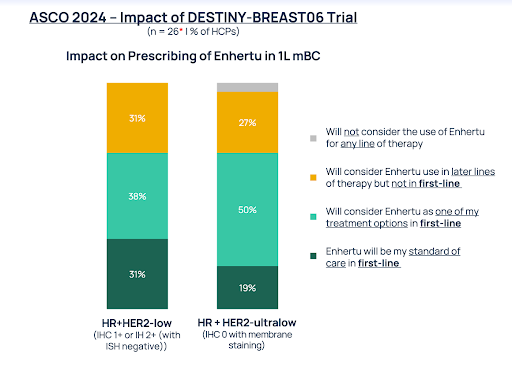
- DREAMM-8 studied Blenrep (BPd) in relapsed/refractory multiple myeloma (MM). It revealed a PFS of 71% compared to 51% with PVd. Even more promising, the median PFS was not yet reached in the Blenrep arm at a median follow-up of 21.8 months, versus 12.7 months for the comparator arm.
Even Phase 2 study data caused excitement. One emerging ADC with high potential is seen in the Phase 2 OptiTROP-Lung01 trial, where the combination of novel TROP 2 ADC sacituzumab tirumotecan (SKB264/MK-2870) and KL-A167 (a PD-L1 antibody) showed promising efficacy along with a manageable safety profile in treatment-naïve non-small cell lung cancer (NSCLC).
These studies are among the reasons ADCs have emerged as the class of therapies that oncologists believe will most shape the future.
Future Promise: Efficacy without Toxicity
Overall, ASCO 2024 celebrated the progress that has been made in the field of clinical oncology. It showcased expanded applications for existing therapies, while offering the promise of new treatment options in the not-so-distant future. At its core, this year’s meeting re-affirmed the goal of clinical oncology: Providing patients with the most efficacious treatments—never compromising their quality of life.
Get in touch with ZoomRx, the leading strategic life sciences consulting services for more information
